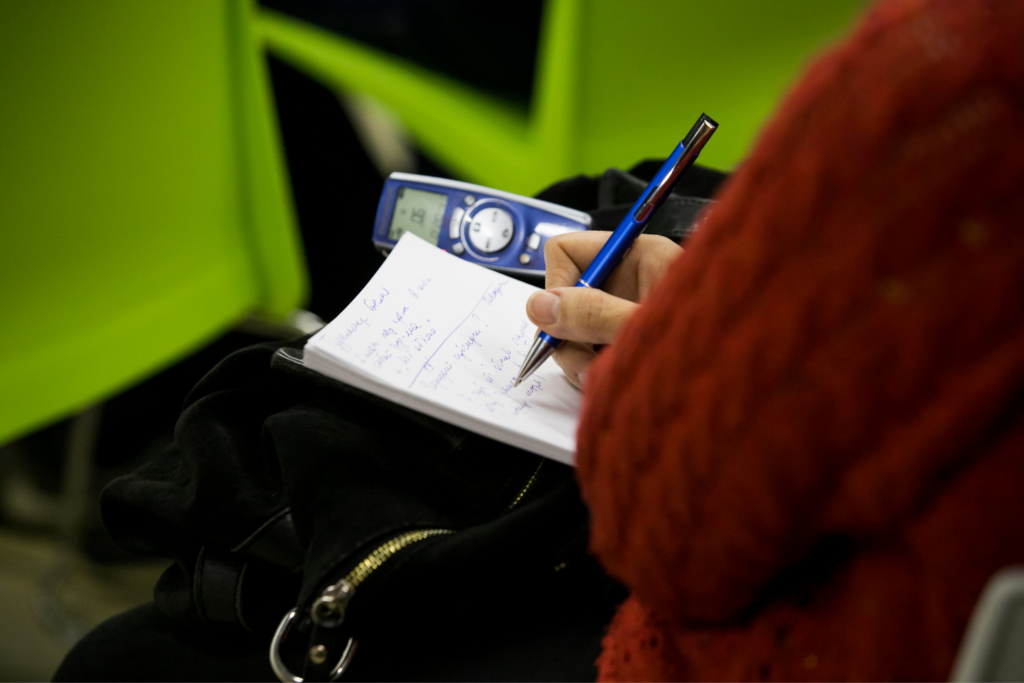It is that time of year again: September. Golden leaves, fall sweaters, and everyone is heading back to school. Get yourself running on the right foot this semester and start studying smart. Here are some tips on how to improve your study skills and really kick butt this year.
6 Ways To Improve Your Study Skills
1. First, you need to be honest with yourself and realistic about how much time you are going to spend studying. This is not a free pass to say, “Oh, well, I am not going to study anyways, so I might as well just blow it off!” This means understanding what you like to spend your time doing, and where all of your time goes. When it comes time to write your term paper, are you going to blow off all the fun parties and events that your friends are going to in order to lock yourself in the library and write? Maybe, but probably not. Or maybe you like to play video games for hours, leaving little time for your studies. This does not have to be the downfall of your academic career. You simply need to know where your time goes and create a schedule that works for you. If you cannot get through the day without your gaming session, schedule yourself two hours to play video games, and then schedule yourself two hours to study. If you allow yourself the time to do what you want to be doing, you will not be so resentful when it comes time to give some attention to your studies.
2. Break your time down into manageable chunks. No one can study for ten hours straight without losing their mind at least a little. When you are planning out your study time, make sure to give yourself breaks. Work for an hour, then take a ten-minute snack break. Then get back to it. When you find yourself drifting, give yourself ten minutes to do something else, then return to your books. Pay attention to when your focus is drifting and allow your brain a bit of a reprieve.
3. Give yourself rewards. A ten-minute snack break after an hour of studying is a decent reward. Make sure that you continue that routine, but also set goals for your study time and determine what kind of reward would be the best for you. You can tell yourself that if you get through all three chapters that you need to study, you can go to that party with your friends, or play an extra thirty minutes of your favorite game. Figure out what motivates you and use that knowledge to really push yourself.
4. Maximize your study time. Pay attention to how you spend your study time. Again, shorter periods of quality studying are better than longer periods of goofing around. If you notice that you spend half of your study time sharpening your pencils and trying to get your notes in order, do your best to get more organized before you have to study so you can cut out those time wasters.
5. Find a good place to study. Figure out where you study best. Do you need silence? Do you need a bit of background noise? Do you need to be away from other people entirely? If you work best in the library, great. Go there. If you work best at a cafe, with a bustling crowd as a bit of white noise, wonderful. Go there. Make sure that it is a place that you can really concentrate and get things done. If you like to have background noise but you are at a cafe where all your friends are constantly stopping by to say hello, then it is time to find a different cafe. Eliminate as many unnecessary distractions as possible. Turning off your phone is a good place to start, as well as turning off any wireless network connection, so long as you do not need it for studying.
6. Sleep enough and stay balanced. In order to be operating on all cylinders, your brain requires sleep. If you are not getting enough sleep, it will be difficult for you to put in as much effort and concentrate as hard as you would like to. Make sleep a priority. And do your best to stay balanced. This goes back to tip number one. Make time for things other than studying: your hobbies, friendships, relationships, family, and your health. If you are not healthy and happy in other aspects of your life, then it is going to be harder for you to study as effectively as possible.
Implementing any or all of these tips will help you start this semester off right and will help improve your grades. Oh, and do yourself a favor and go to class! What are you waiting for? Start today!





